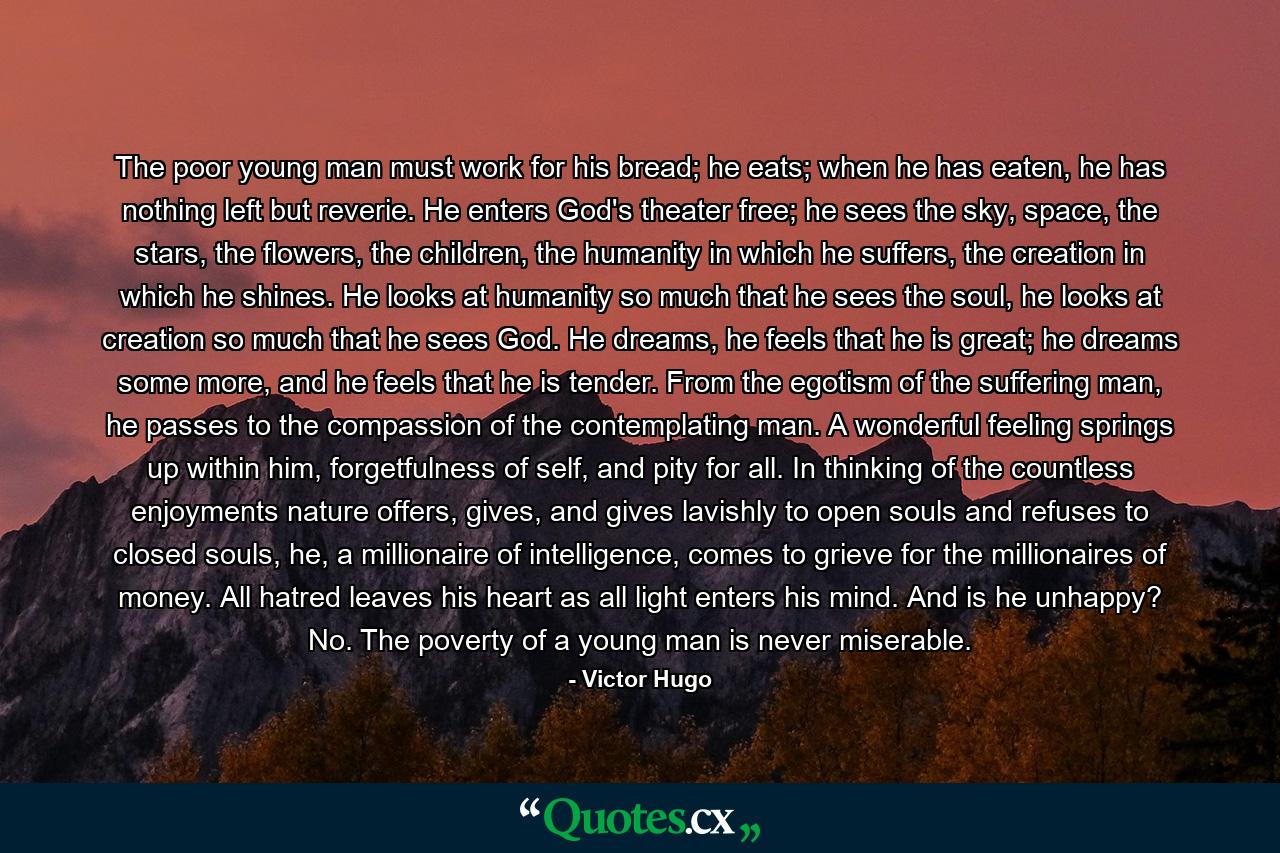The poor young man must work for his bread; he eats; when he has eaten, he has nothing left but reverie. He enters God’s theater free; he sees the sky, space, the stars, the flowers, the children, the humanity in which he suffers, the creation in which he shines. He looks at humanity so much that he sees the soul, he looks at creation so much that he sees God. He dreams, he feels that he is great; he dreams some more, and he feels that he is tender. From the egotism of the suffering man, he passes to the compassion of the contemplating man. A wonderful feeling springs up within him, forgetfulness of self, and pity for all. In thinking of the countless enjoyments nature offers, gives, and gives lavishly to open souls and refuses to closed souls, he, a millionaire of intelligence, comes to grieve for the millionaires of money. All hatred leaves his heart as all light enters his mind. And is he unhappy? No. The poverty of a young man is never miserable.
